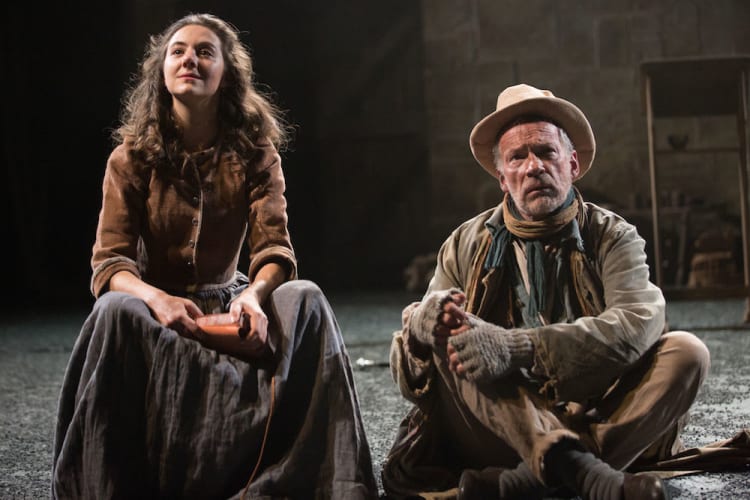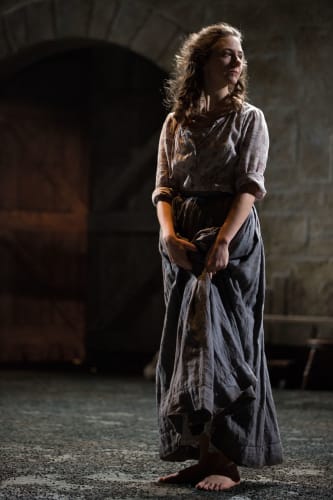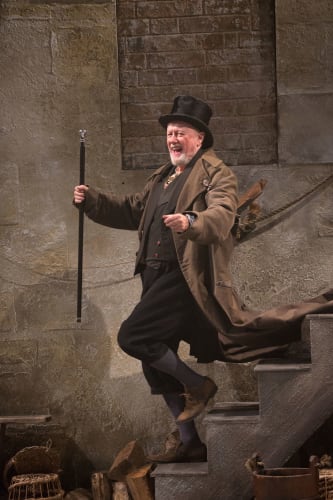Translations is the second of three plays performed in the course of a month in Sheffield Theatres’ Brian Friel Season.
It was first performed in Derry in 1980 at the height of the ‘Troubles’, and refers back to an earlier period in Irish history when English soldiers were dispatched to make the 1828 Ordnance Survey map of County Donegal.
It becomes apparent that the mapping is not an innocent pastime but a way for the British government to assert stronger control over the subjugated Irish people, and this is achieved, as in other colonial contexts, by the Anglicisation of local place names.
In Friel’s play language becomes a metaphor for exploring a range of issues relating to colonisation.
By Anglicising place names, the British not only avoid having to struggle with an unpronounceable language, but impose their names on the map just as their soldiers have imposed a military presence on the nearby countryside. This has the effect of further disempowering the already resentful local community and fuelling the flames of early Nationalism.
The setting of the play is a ‘hedge-school’ in a disused barn, where members of the local community pay a pittance to be taught the rudiments of English, maths and other subjects.
The school is run by ageing, flamboyant, patriarchal Hugh, with the help of his crippled son Manus.
The curriculum is dominated by Hugh’s obsession with the classics, and the adult attendees are required to learn the Latin roots of English words as well as conjugate Latin verbs, when the pressing need is to be able to communicate effectively in the English language.
Friel’s play is a dense canvas on which issues relating to language and conquest are presented through the various relationships portrayed.
Manus refuses to speak English to the soldiers, though he can. Maire and English soldier Yolland fall in love though they can barely communicate. Captain Lancey uses the re-named map to threaten reprisals against selected communities. Hugh clings to the classics because they remind him that conquest and colonisation are part of long European heritage.
Designer Lucy Osborne provides a convincingly realistic barn setting for the hedge-school. There are strong, clearly defined performances from the whole cast.
Niall Buggy as Hugh is a magisterial, charismatic figure, who dominates the action but also provides moments of comic relief through his drunkenness and eccentric teaching methods.
As the slightly unhinged, obsessive Jimmy Jack, John Conroy allows the eccentricity of the character to shine through, as in the announcement of his imminent marriage to Pallas Athene, and concern about how he will get on with his father-in-law, Zeus. I thought his clothes could have been a bit filthier.
There are excellent performances from the three women in the cast. Hannah James-Scott is a strong presence as Bridget. Roxanna Nic Liam gives a sensitive and moving performance as Sarah, an extremely important symbolic figure in the play, although almost a mute role.
Beth Cooke is related to Niamh Cusack who appears in Afterplay, the first play of the Friel Season. It is remarkable how similar the two actors are in appearance and performance style.
Cooke shows a remarkable emotional range as Maire, joy to despair and much more, and is in two fascinating love scenes with Yolland (James Northcote) in which Friel invents a theatrical convention which permits both actors to speak in English, while in the dramatic fiction, one is speaking English and the other Irish. Mesmerising to watch and intriguing to de-code.
All the young male characters are clearly realised, and develop convincingly as circumstances around them change. Paul Cawley is a chilling Captain Lancey in a denouement which reveals a hand of friendship that has turned into an iron fist.
Friel is a challenging playwright, who presents complex issues in a complex way. This production does full justice to the resonance and poetic quality of the writing, and to the ‘language of theatre’ he has mastered. The production is on tour from 11 March to 3 May.


